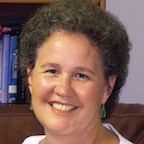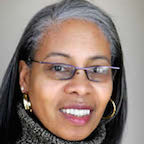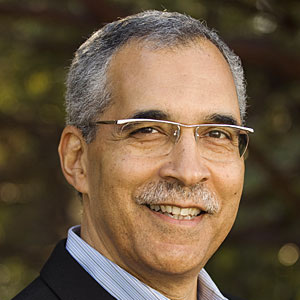Education Week recently published the Rick Hess Straight Up Edu-Scholar Public Influence Rankings. The rankings list the 200 university-based education scholars who had the biggest influence on the nation’s education discourse last year. The scholars are ranked in eight categories including Google Scholar ratings, mentions in major newspapers, books published and their rankings on Amazon.com, Twitter scores, and mentions in the Congressional Record. The rankings are calculated by scholars at the American Enterprise Institute.
Three of the top 10 influential educators are African Americans, including the highest ranked education scholar in the nation.
 Leading the list of the most influential education scholars is Linda Darling-Hammond is the Charles E. Ducommun Professor of Education Emerita at Stanford University where she is faculty director of the Stanford Center for Opportunity Policy in Education. She is a former president of the American Educational Research Association. Her most recent books are Getting Teacher Evaluation Right: What Really Matters for Effectiveness and Improvement (Teachers College Press, 2013) and Beyond the Bubble Test: How Performance Assessments Support 21st Century Learning (Jossey-Bass, 2014). Dr. Darling Hammond is a magna cum laude graduate of Yale University and hold a doctorate in urban education from Temple University in Philadelphia.
Leading the list of the most influential education scholars is Linda Darling-Hammond is the Charles E. Ducommun Professor of Education Emerita at Stanford University where she is faculty director of the Stanford Center for Opportunity Policy in Education. She is a former president of the American Educational Research Association. Her most recent books are Getting Teacher Evaluation Right: What Really Matters for Effectiveness and Improvement (Teachers College Press, 2013) and Beyond the Bubble Test: How Performance Assessments Support 21st Century Learning (Jossey-Bass, 2014). Dr. Darling Hammond is a magna cum laude graduate of Yale University and hold a doctorate in urban education from Temple University in Philadelphia.
 Gloria Ladson-Billings ranked fifth among most influential scholars in education. She holds the Kellner Family Chair in Urban Education at the University of Wisconsin-Madison. Professor Ladson-Billings is a past president of the American Educational Research Association. She is a graduate of Morgan State University in Baltimore and holds a master’s degree from the University of Washington and a doctorate from Stanford University. Dr. Ladson-Billings is the author of Beyond the Big House: African American Educators on Teacher Education (Teachers College Press, 2005) and The Dreamkeepers: Successful Teachers of African American Children (Jossey-Bass, 2005).
Gloria Ladson-Billings ranked fifth among most influential scholars in education. She holds the Kellner Family Chair in Urban Education at the University of Wisconsin-Madison. Professor Ladson-Billings is a past president of the American Educational Research Association. She is a graduate of Morgan State University in Baltimore and holds a master’s degree from the University of Washington and a doctorate from Stanford University. Dr. Ladson-Billings is the author of Beyond the Big House: African American Educators on Teacher Education (Teachers College Press, 2005) and The Dreamkeepers: Successful Teachers of African American Children (Jossey-Bass, 2005).
 Claude Steele is executive vice chancellor and provost at the University of California at Berkeley. From 2011 to 2014, he was dean of the Graduate School of Education at Stanford University. Professor Steele served for two years as provost at Columbia University in New York City after being a member of the Stanford faculty from 1991 to 2009. Professor Steele is perhaps best know for his work on the underperformance of minority students due to stereotype threat. Professor Steele is the author of Whistling Vivaldi: How Stereotypes Affect Us and What We Can Do (W.W. Norton, 2010). Professor Steele is a graduate of Hiram College in Ohio and earned a Ph.D. at Ohio State University.
Claude Steele is executive vice chancellor and provost at the University of California at Berkeley. From 2011 to 2014, he was dean of the Graduate School of Education at Stanford University. Professor Steele served for two years as provost at Columbia University in New York City after being a member of the Stanford faculty from 1991 to 2009. Professor Steele is perhaps best know for his work on the underperformance of minority students due to stereotype threat. Professor Steele is the author of Whistling Vivaldi: How Stereotypes Affect Us and What We Can Do (W.W. Norton, 2010). Professor Steele is a graduate of Hiram College in Ohio and earned a Ph.D. at Ohio State University.

